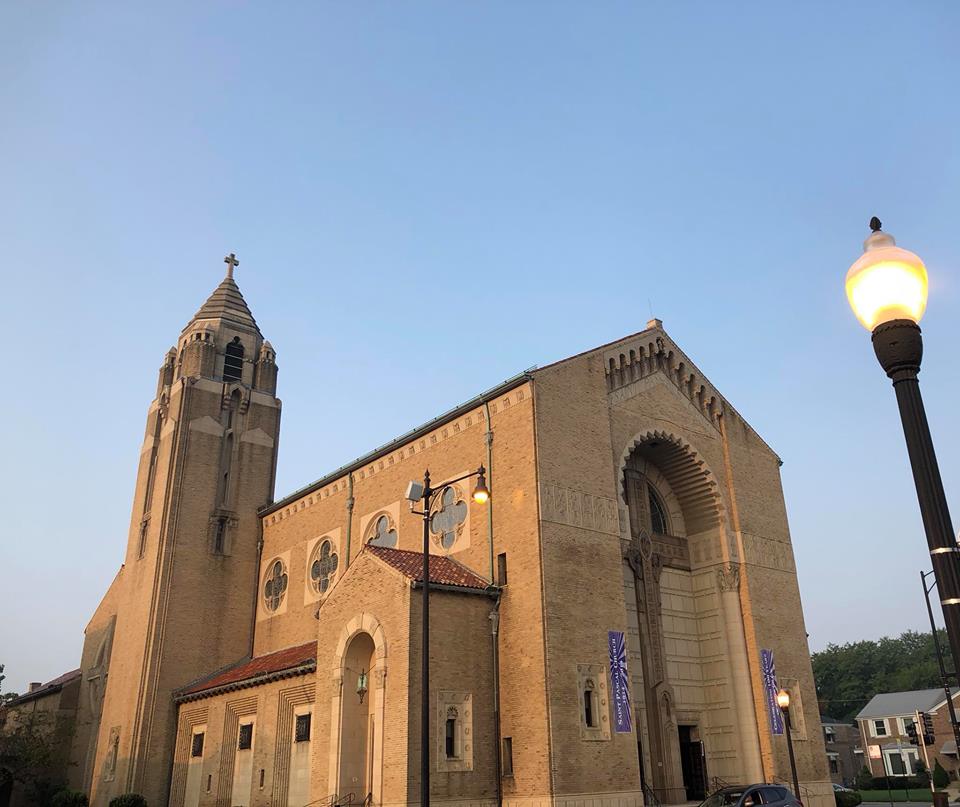From the Parish Website at www.stpascal.org
Saint Paschal (Pascal) Baylon was a sixteenth century Spanish friar known for his prayerful holiness and a life dedicated to the veneration of the Holy Eucharist and the Blessed Virgin. He was born to impoverished parents Martin Baylon and Elizabeth Juberaat Torrehermosa, in the Kingdom of Aragon in northeastern Spain, on May 24, 1540, coinciding with the Feast of Pentecost. The feast day, in Spain, is called, La Pascua del Espiritu Santo, which translates as the Pasch (Passover) of the Holy Spirit, hence the name Paschal. As a child, he received his religious education from his devout mother, who regularly took him to Mass at the town church. Throughout his childhood, he would slip away, only to be later found keeping vigil at the church tabernacle. From ages seven to twenty-four, Paschal labored as a shepherd. On his shepherd’s staff, he carried a small statue of the Blessed Virgin. If he remained in one spot for a long time, he would stick his staff in the ground and pray before his portable shrine. Always carrying a book—according to one biography, someone had given him a copy of The Office of the Blessed Virgin Mary—Paschal learned to read by begging passersby for lessons, and taught himself to write.
Around 1564, Paschal received a vision, urging him to follow the example of Saint Francis of Assisi. Accounts of visions, prophesies, and miracles would pervade stories of the future saint’s life. He eventually spoke to a Superior at a monastery, and was accepted as a lay brother among the Franciscan friars of the Alcantarine Reformat Monteforte, Spain. Paschal chose to live in poor monasteries because, he said, “I was born poor and am resolved to die in poverty and penance.” Though encouraged to study for the priesthood, Paschal remained a brother. At the monastery, he worked as porter, cook, gardener, and alms collector. On the road, while gathering alms, he always held a rosary in his hand. Paschal practiced asceticism, was a mystic and contemplative, and experienced ecstatic visions while spendingnights before the tabernacle in prayer, though he downplayed his piety and never allowed his personal devotions to interfere with his duties. His intense love of Christ’s presence in the Eucharist helped him recognize Christ in the sick and poor, for whom he felt a special compassion, comforting them in their trials, instructing them in religion, and dispensing alms. While on a mission to France, he courageously defended the Catholic doctrine of Christ’s Real Presence in the Eucharist against a Calvinist preacher, and on several occasions narrowly escaped with his life from assaults by Huguenot mobs.
Paschal died at the age of fifty-two at the friary in Villarreal, Spain, May 17, 1592, the day on which Pentecost fell that year. Bed-ridden, he reportedly breathed his last at the moment of the elevation of the Sacred Host during High Mass in the friary church.Official accounts of his canonization record over twenty-five miracles that occurred during the three days his body lay in state. His tomb is in the Royal Chapel in Villarreal. He was beatified by Pope Paul V in 1618, and canonized by Pope Alexander VIII in 1690. His feast day is May 17. In 1897, Pope Leo XIII declared Saint Paschal patron of all Eucharistic confraternities and congresses.
As patron of our parish, Saint Paschal reminds us of the importance of recognizing the presence of Christ in the consecrated bread and wine we receive at Mass.We pray to Saint Paschal to help us increase our love for the Eucharist and help us make every effort to spend more time in the presence of Christ so that we may recognize Christ in others.

